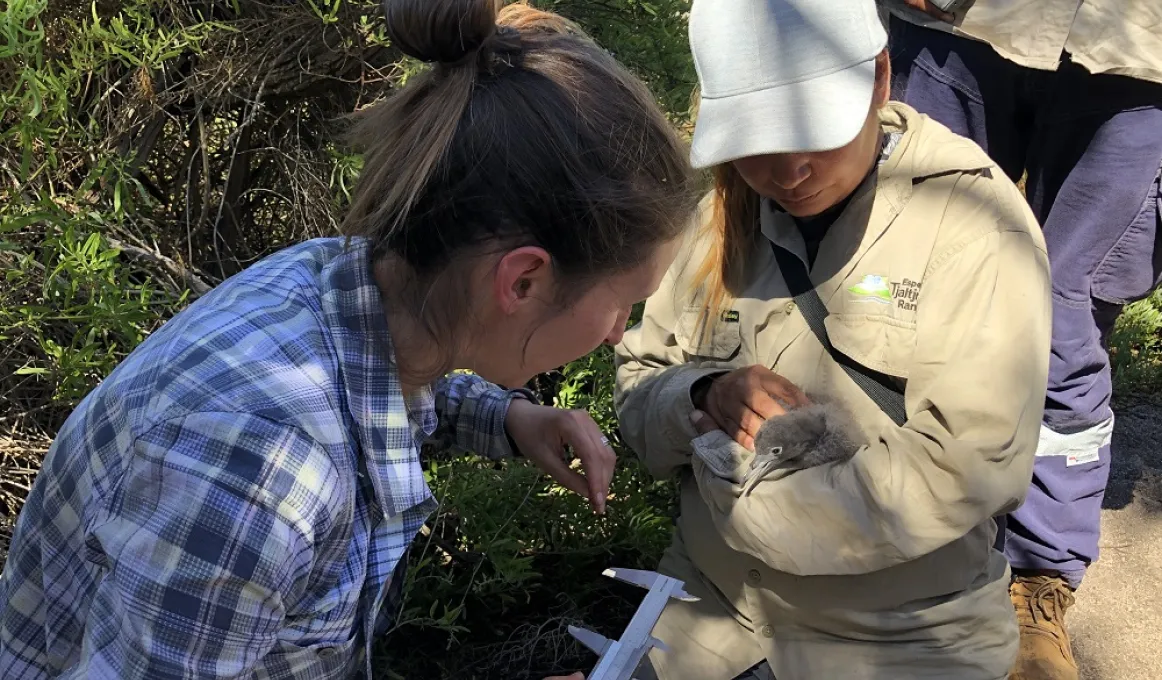Tjaltjraak Rangers better able to preserve Country through Government funding

Funding for the Tjaltjraak Indigenous ranger project is helping them to preserve their cultural heritage and country in the spectacular landscape of south-western WA.
In July 2021, the Australian Government approved funding of $6.8 million to support the Tjaltjraak Indigenous ranger project for seven years, empowering the Esperance Nyungar people to protect and conserve their land and sea country.
David Guilfoyle, the Healthy Country Plan Coordinator at the Esperance Tjaltjraak Native Title Corporation, said the funding has had a positive impact.
‘This funding enables the rangers to progress their careers,’ David said.
‘Members of the ranger team are demonstrating personal advances in their skills, competence, and confidence as they have full ownership of program development and delivery and connection to what it means to be a Tjaltjraak Healthy Country Program Cultural Ranger.’
The long-term ranger program funding has enabled a full-time operation with an expanded full-time work force focused on cultural leadership in caring for country.
‘This benefits our community and allows us to come together under this structure and model to align the cultural, social, economic, and environmental outcomes our community has outlined as goals and targets of our strategic plans, including the Healthy Country Plan.’
The extra funding brings wider benefits to the Tjaltjraak community through valuable projects.
‘These include a long-term fish ecology project with Murdoch University and a cultural burning for biodiversity program with landowners and government agencies,’ David said.
‘There is also a long-term seabird and marine debris study with the University of Tasmania, and a cultural-ecological landscape restoration project - among other innovative and impactful collaborations.’
This further funding makes ongoing plans and tasks more secure in what is a global diversity hotspot.
‘In this area are two Threatened Ecological Communities, at least 60 threatened species of plants and animals, and at least 23 migratory species,’ David said.
‘It includes two Ramsar wetland systems of high cultural significance as well as cultural sites of enormous significance not just to the traditional owners but to the archaeological world.’
‘Natural and cultural values are under threat from wildfires, dieback disease, invasive species and uncontrolled recreational and tourist use. Increasing the capacity of Tjaltjraak rangers to manage these threats will improve the protection of cultural heritage while contributing to national and regional ecological outcomes.’
Ensuring the continual funding of the Tjaltjraak rangers is critical to preserving this spectacular landscape or as David puts it, ‘the blue-grey granite outcrops, tannin-tainted waterways, beautiful and diverse vegetation communities, our incredible birdlife and cultural animals, and the unique, majestic coastal and marine ecosystem enriched by the Recherche Archipelago.’
Find out more
The NIAA supports the Tjaltjraak ranger project through the Indigenous Ranger Program to manage the Esperance Nyungar land and sea country, protecting it from invasive species and maintaining its natural and cultural heritage.